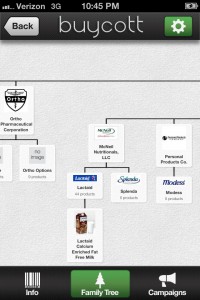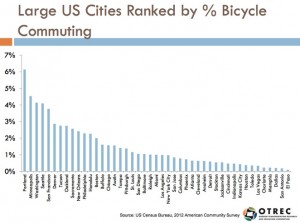
In her keynote speech at last year’s annual Netroots Nation gathering, Darcy Burner pitched a seemingly simple idea to the thousands of bloggers and web developers in the audience. The formerMicrosoft MSFT +0.6% programmer and congressional candidate proposed a smartphone app allowing shoppers to swipe barcodes to check whether conservative billionaire industrialists Charles andDavid Koch were behind a product on the shelves.
Many conversations about sexuality focus on health. It’s safe and respectable. Builds the immune system? Yep. Good for the heart: check. Relieves menstrual cramps and depression: double check. Sex bonds us through the oxytocin-dopamine cascade: check again. We know healthy people have more sex, and having good clean fun may help you live longer too. Orgasms are great for body and mind, and caresses feed our skin hunger. Check, check, check.
Continue reading... →In today’s world of processed foods, pollution, and pink slime, you might be wondering how to ensure that what your family is eating is healthy.
Buying organic is a great start, but growing it yourself opens doors to tremendous possibilities. Here’s why:
1. Avoid Pesticides – Conventional agriculture uses petroleum based chemicals to combat pests in the field, which not only damages the environment, but destroys important soil microbes that help plants grow. In your own garden, you can plant a diverse range of produce, instead of growing acres of one thing. This cuts down on pest attacks and can even attract beneficial insects to the garden to handle your pest problem for you. You can choose organic means of pest control, like soap sprays, hand-picking (the best pest control tool is your hands, after all) or other methods that don’t leave harmful residues on your food.
Continue reading... →
A team of doctors at the Department of Obstetrics and Gynecology at the University of Sherbrooke Hospital Centre in Quebec, Canada looked at the prevalence of Bt toxins in female patients, finding that the chemicals — which are often implanted into GMO crops including corn — were found in the majority of those who were surveyed. Those who were pregnant at the time of the survey, 93 percent of them had traces of Bt toxin in their blood, and 80 percent of their umbilical cords contained the chemical.

Support the young ones you know.
They have to take it from here
For me, the holidays are a time to reflect on what we’ve achieved over the past year and look ahead to the challenges and possibilities the New Year holds in store. 2012 was a quite a year. Besides the obvious big story – the reelection of President Obama – here’s a list of my ten favorite stories of the year.
Continue reading... →Here is a list of 20 sustainability trends that are changing the landscape. We’re keeping our eyes on these…
1. From economic collapse to a green economic recovery. Interest in all things “green” continues to grow as the economy sinks. About 34 percent of people are now more likely to buy environmentally responsible products, and 44 percent say that their environmental shopping habits have not changed during this downturn. Businesses are realizing the ability to minimize costs through environmentally conscious operations.
2. From carbon footprint confusion to footprint awareness. More than half of the global population is aware of the term “carbon footprint,” up from 38 percent in 2007. As this awareness grows, consumers will likely drive the sustainability market by demanding low carbon products.
3. From carbon offset doubt to market development. More companies will continue to offset carbon emissions, with an expected growth in the global carbon offset market of 20 percent in 2009. Despite this prediction, Clownfish hope that there will be a stronger trend for direct reductions rather than offsetting; as the old saying goes, “prevention is better than cure.”
4. From carbon-centric to water-centric. The UK has become obsessed with carbon footprints, but now the term water footprint has entered the corporate vocabulary. About 2.6 billion people have no access to clean water, a problem not isolated to developing countries. Businesses will no longer be able to ignore their water use and efficiency.
Continue reading... →Among all developed countries, Americans are the fattest people in the world. The World Health Organization found over 60% of the American population is obese or overweight. Even more disturbing, the U.S. is the only country in the developed world to label obesity a national security health risk. Top Pentagon officials have warned Americans are becoming so fat, most of those volunteering for the Army are disqualified because of their size. Child obesity is also on the rise in the U.S. The Centers for Disease Control estimates 1 in every 3 American kids are either obese or overweight. Jeffrey Smith, the author of Seeds of Deception, points to the mass production and consumption of genetically modified foods in the U.S. as a possible source of the problem.
So tell food manufacturers: Get your GMOs out of our plants.
Happy Thanksgiving!
Continue reading... →Earlier this week, Proposition 37 asked voting Californians to approve new legislation that would require food and beverage manufacturers to notify consumers about the use of genetically modified organisms on the product label.
While the proposition did not pass, it was close, with 46% for the initiative and 54% against. Why didn’t it win? While the issue is complex and polarizing, there are a few attitudes and beliefs discovered in NMI’s most recent Organic Study that shed light on the subject.
Here are a few of those beliefs that may have affected the outcome:
Some consumers say, “I don’t understand it, so I don’t care”
Some consumers fear labeling GMOs would increase the cost of food
Some consumers believe GMOs are necessary to feed the world population





